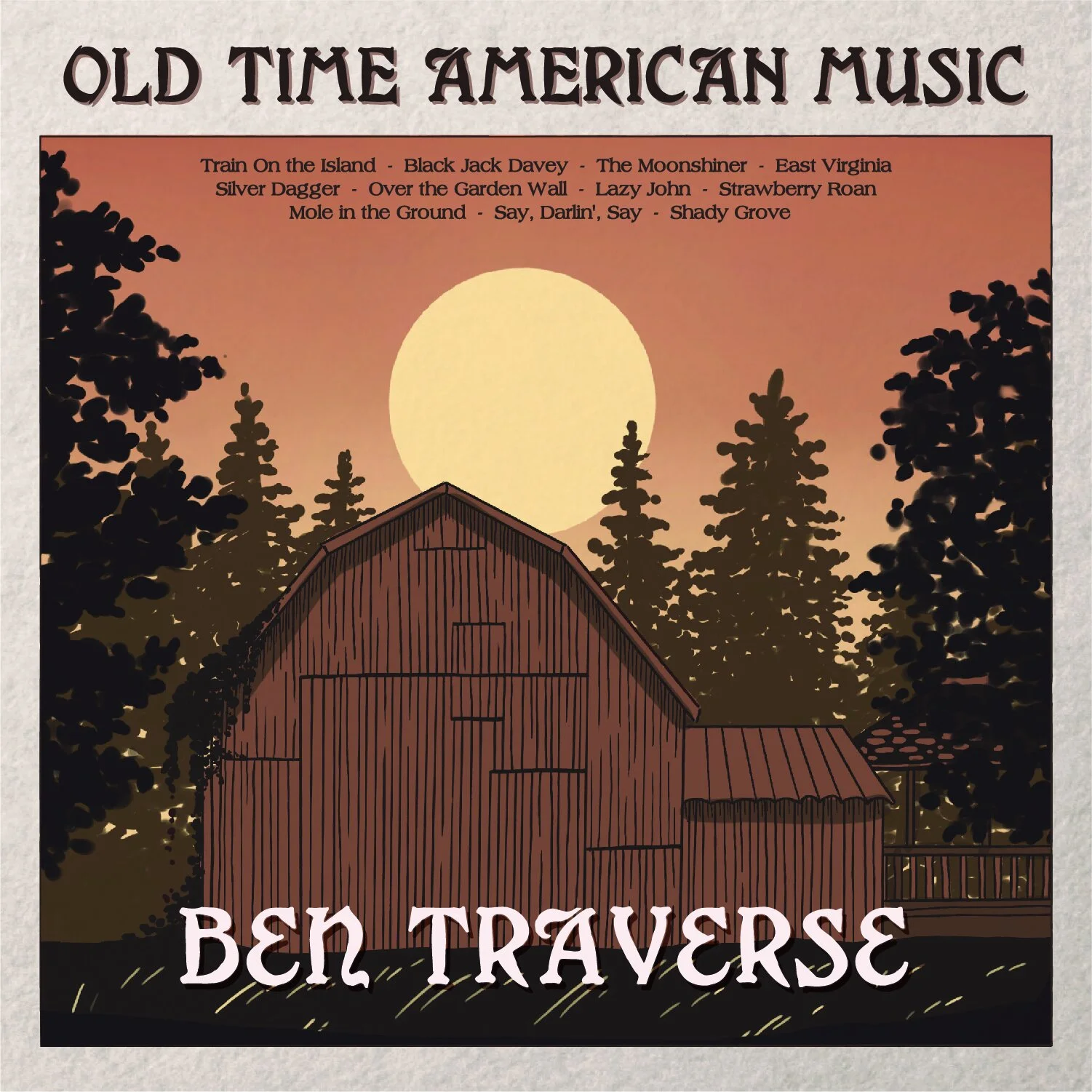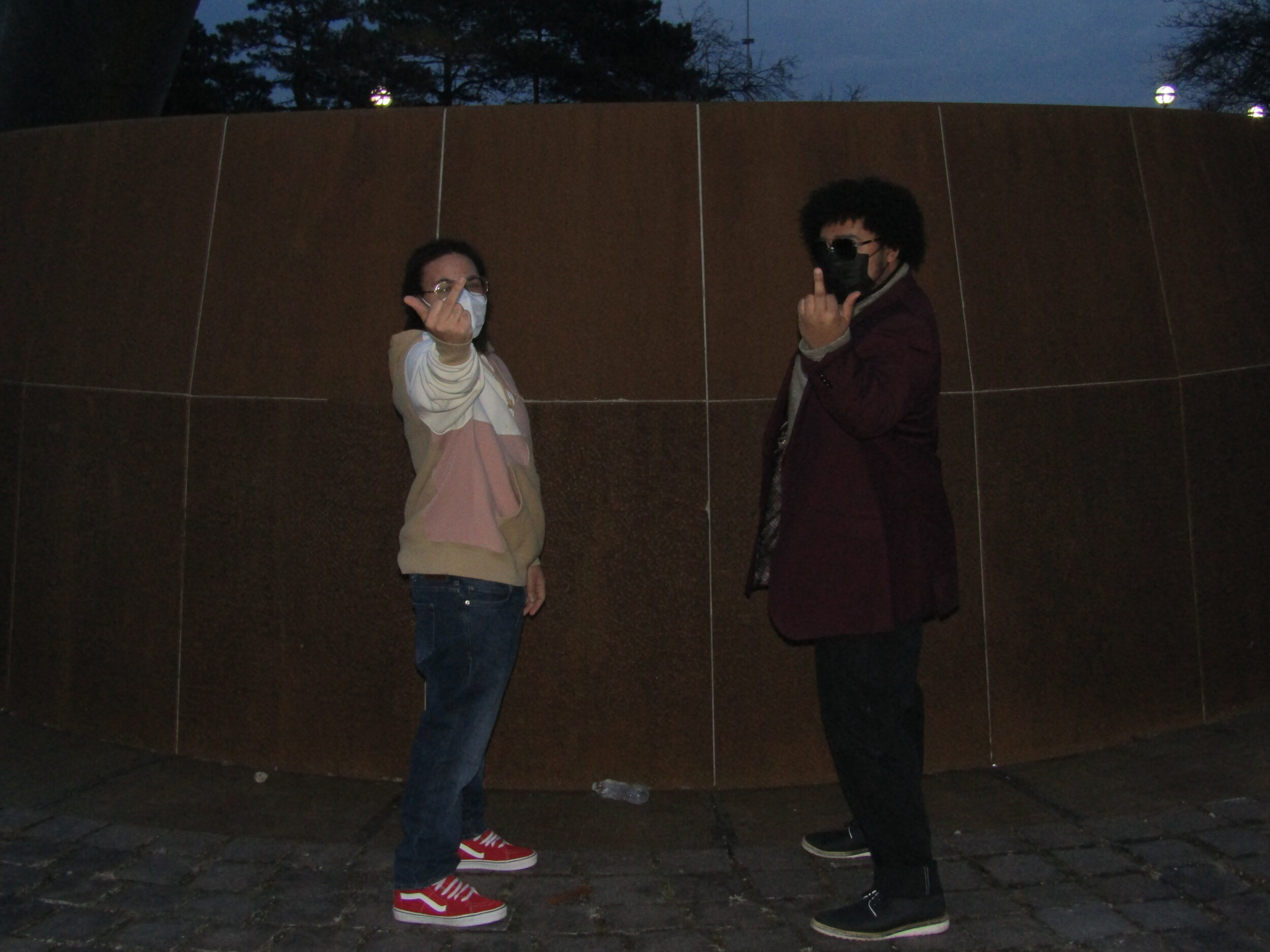Restless Star - Overdrive Orchestra (Album Review)
Rock music has had an interesting transformation in the public eye the last few decades. There are those who stick to the traditions of the classics, sometimes refusing to acknowledge a modern sound unless it is steeped in nostalgia. Some acts lean into the commercial spectacle of a post-alternative rock world, where it is very lucrative to craft a product that plays into tropes and aesthetics over offering something new to the conversation. However, rock music has always had a strong undercurrent of personality and polish, turning amps up loud and delighting in how the perfect riff on a guitar can turn into a whole universe. In Grand Rapids, one can journey to the ends of a rock galaxy through the catalog of Overdrive Orchestra, a group that has garnered local recognition for their songwriting, live shows, and fierce commitment to a vision they all can enjoy occupying with their fans.
On their latest release, Restless Star, listeners are treated to 11 new tracks that invite people to “rise above the haze of daily life & rediscover their sense of self” through examining the duality of life and death. (Bandcamp) This includes acknowledging the mental health struggle of wearing many hats to survive in modern living and shedding the burdens that no longer serve one's goals and sense of being, something incredibly hard to do for many artists and non-artists alike (and something I’m personally working on in my creative career). It is a sonic journey that ebbs and flows beautifully, knowing just how and when to deliver a knockout punch after giving some breathing room to reflect and sink into a range of emotions.
The record starts with a tune called “Moonstruck,” a track that articulates the feeling of being stuck and wanting some cataclysmic shift to happen in order to usher in change. The simmering opening riff and vocals immediately bloom into a driving, interstellar rock sound decorated with layers of synths and vocals. “Storyteller” bumps up the energy while lyrically centering on being one’s own worst enemy, with lines like “Same old tired story/Etched upon the mind’s eye/All told over a glass of wine” building to a climax as if to break through that mental barrier. “Dark Mountain” hits hard with an almost Tool-esque combination of guitar/bass riffs and drums while encouraging audiences to remove their masks and let their true selves shine, hammering this point home with a powerful breakdown that shatters any attempt at hiding.
The album offers several moments to rest, breathe, and reflect during some instrumental tracks that feature Jordan Hamilton on cello, helping to really highlight the orchestra beyond the overdrive. “Atlas” is the first of these four, lush instrumentals, creating gorgeous soundscapes that offer a palette cleanser before diving back into more rock energy with “Written in the Sand,” a song that uses fantasy-driven storytelling with a heavy sonic backdrop to create a moment of triumph after so many hard-fought battles. “…Adrift” offers another moment of levity, with acoustic guitar, piano, and cello intimately performing together. “No Consent” hits an almost Motorhead-style high note with bassist Adam Bogues taking the lead on vocals to compliment Chris Cranick in a way that also is reminiscent of Mastodon in spots. The track emphasizes the punk sentiment of criticizing the police and their sanctioned war on the public while also offering a sinister undercurrent centered around the fear of cops that is palpable as soon as their lights flood into the rearview mirror. The mood of this tune is driven home in the instrumental that follows, building on the dark, moody tones with “Mourning Dusk.”
“Looking Glass” swings from slow and somber into a rush of sonic energy, complete with a guitar solo to cap off the end of the song. Lyrically, this song touches on the feeling of isolation supplemented by the collective anxieties we all feel while looking through the lens of our incessant screen-based consumption. “Restless Star” acknowledges these feelings further through lyricism set to excerpts of an interview with Marita Hacker (We Are the Middle of Forever: Indigenous Voices from Turtle Island on the Changing Earth) and a moment of calm once again provided by acoustic instrumentation and Jordan Hamilton’s skillful work on the cello. To cap off the record, “Figure 8” is a mixed-meter jam that reminds listeners to unshackle from the past and welcome what life is offering next.
Restless Star is a testament to the collaborative journey that can evolve through art and the shared, human desire to grow as time marches on. Throughout the album are moments to thrash and headbang right before you sink into a peaceful minute of reflection on one’s own progress through life. For a genre that often gets presented as stale, Overdrive Orchestra continues to breathe fresh life into their sound with a collection of tracks that meld deep, personal lyricism and expansive, sonic set pieces that easily lives up to the namesake of the band. It shows a group willing to grow alongside their audience, offering new experiences while paying homage to the moments along the journey that allowed them to continue to stride forward in 2024 after several years and albums under their belt. If you’re looking for something to blast in the car or a time to self-reflect boosted by the adrenaline of a rock concert, look no further than Restless Star.
Album Credits:
Chris Cranick - acoustic, electric and baritone guitars, vocals, E-Bow, mandolin, Fender Rhodes (track 2), piano (track 3), backing vocals
Adam Bogues - acoustic and electric basses, vocals (track 7)
Shaun Sova - electric guitar
James Blevins - Moog, Juno-DS88, piano, spoken word (track 10)
Cameron Hill - drums, percussion
Additional musicians:
Jordan Hamilton - cello (tracks 4, 6, 8, 10)
Jim Wirt - Hammond B-3 organ (track 7)
Brandon Miller - inspiration and musical direction (track 1)
All songs written by Overdrive Orchestra
Published by Phunky Phetus Music (ASCAP)
Produced by Overdrive Orchestra, Jim Wirt, Patrick Sheufelt
Engineered by Jim Wirt, Kevin Kozel, Patrick Sheufelt
Additional engineering by Joe Sturgill, Raziel Castaneda
Recorded at I/O Detroit Studio, Superior Sound Studios, Third Coast Recording Co. during March 2022 – January 2024
Mastered by Larry McKay at LMK3 Recordings
Cover Art by Zulfajri MB
Design by Chris Cranick
Support Overdrive Orchestra!
Website: https://overdriveorchestra.com/
Facebook: https://www.facebook.com/OverdriveOrchestra/
Instagram: https://www.instagram.com/overdriveorchestra/
YouTube: https://www.youtube.com/@OverdriveOrchestra
Spotify: https://open.spotify.com/artist/7xeTmcjGWU60MaU7nly3ID?si=bWFKneP0Q06KHNUEiyuMRg
Apple Music: https://music.apple.com/us/artist/overdrive-orchestra/381644994
Soundcloud: https://soundcloud.com/overdrive-orchestra
Bandcamp: https://overdriveorchestra.bandcamp.com/























